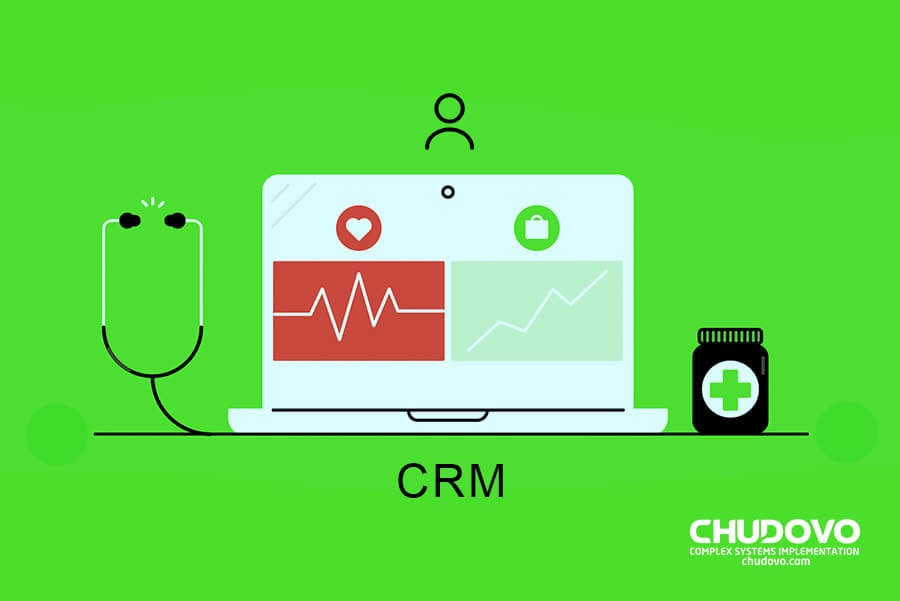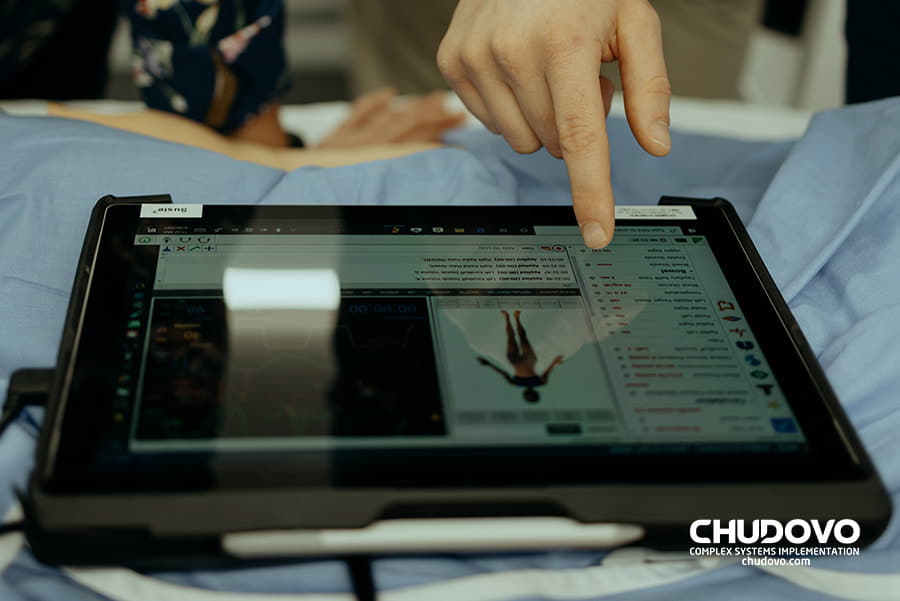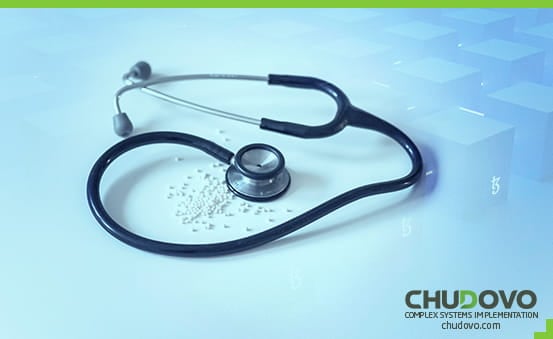Revolutionizing Patient Care: The Power of Healthcare CRM Development
In a generation led by high technological advancement, it is only right that the healthcare sector adopts it into its operational systems as it is one of the most patronized sectors in the world. Business organizations now seek better ways to improve their customer relations, promote growth and sustain the positive image of their companies.
With the number of people that use healthcare systems, doctors, nurses, and matrons can’t keep in touch and have a personal relationship with all their patients without having major loopholes, therefore, filling up every gap in patient care, which goes beyond treating, Customer Relationship Management (CRM) development comes into play in the healthcare system.
CRM development performs vital roles in transforming how the healthcare systems operate and deal with their patients by enhancing patient’s overall experience, personalized care, improving communication, and so much more. All these will be discussed below to highlight how powerful and effective CRM development is to the healthcare system.
Table of Contents
- What does CRM stand for?
- What is Healthcare CRM Development?
- Why is CRM Software Development Important in Healthcare?
- Benefits of Healthcare CRM Development
- Features of CRM healthcare software
- Components of CRM
- Types of CRM
- Examples of CRM healthcare software tools
- Pros of Healthcare CRM
- Cons of Healthcare CRM
- How to choose the best CRM for the healthcare system (steps to follow)
- Conclusion
- FAQs

What does CRM Stand For?
CRM means Customer Relationship Management. It means a system of building, sustaining, and maintaining a company’s or organization’s interaction and relationship with clients or potential clients. The goal is to improve customer service and retention to promote growth and patronage.
Oftentimes, when people say CRM, they are referring to the technology system or software that has been specially designed and built to perform the function of keeping organizations and companies connected to their clients.
What is Healthcare CRM development?
It refers to the process of building, creating, integrating, customizing, and implementing a Customer Relationship Management (CRM) system to a healthcare organizational procedure and process of growth. It involves the design and deployment of CRM software technology in the healthcare system. That is, after the due process of creating, building, and designing CRM software that suits the system, it is implemented and integrated into the healthcare business structure.
CRM development embodies various talents and stages for proper functionality. The talents include; Frontend developers, Backend developers, UI/UX designers, QA engineers, Project managers, and Business analysts.
The stages in the development of healthcare CRM software include:
- Understanding the healthcare system, objectives, requirements, structures, and processes.
- Designing the CRM system solution plan to fit and meet the healthcare system requirements. Here, the development team creates CRM software that enhances the scope of the system.
- Developing the CRM software. This is the stage where the software application is built and developed, it involves coding, programming languages, databases, and development frameworks. It is also customized and configured in its features to align with specific business processes, workflows, and data structures.
- Quality assurance testing. This is done after building and designing the CRM system software for the healthcare organization. The ability to deliver effectively is tested and checked by the QA engineer’s team. They also use this stage to rectify bugs, glitches, and issues.
- Integrating CRM software development into the healthcare system.
Why is CRM Software Development Important in Healthcare?
Customers, in this case, patients and clients, are who make the healthcare business thrive. A business is pointless without customers, and so, the importance of patient satisfaction is not overemphasized. CRM development can aid in better relationships between healthcare organizations and their clients. Here is some basic importance:
- Comprehensive and documented patient information
- Efficient appointment management
- Proactive health monitoring
- Feedback from patients
- Healthcare Collaboration
Comprehensive and documented patient information
Healthcare CRM development software is built for various uses, one of which includes saving and compiling information and details. It is a record-keeping software application that stores and properly documents information about patients, including medical history, diagnoses, medications, allergies, and contact details for the use of healthcare officials in future reference.
Unlike the old system that makes use of files and a stack of papers to safely keep records of patients’ information, this is done electronically and gives easy access to healthcare officials who need medical information on patients. It saves time, energy, and errors. It doesn’t make mistakes in patient information, whatever has been stored right from the onset is what remains there except if there is any intentional alteration.
Efficient appointment management
One of the dreaded processes patients have to go through is making or booking an appointment with healthcare medical staff. There could be obstacles like wrong scheduling, double appointments, and the like, but with Healthcare CRM development software, there are higher chances of avoiding these obstacles as the application has been properly designed by frontend developers to make efficient appointment booking for patients. This promotes patient satisfaction with the healthcare system services.
Proactive health monitoring
Since healthcare officials have easy access to a patient’s medical history and information as a result of CRM development software, they can make and facilitate active medical plans to follow up on patients’ health ahead of time to avoid potential health issues and challenges.
Feedback from patients
CRM development software promotes communication and feedback from patients through the use of surveys, feedback forms, platform engagements, and so on. These mechanisms provide healthcare systems back with information regarding their services, their satisfaction, and suggestions for improvement. It also gives patients a sense of belonging, participation, and appreciation.
Healthcare Collaboration
CRM software provides a shared platform where healthcare providers or officials from different organizations come together to communicate securely for care transitions and updates on treatments. This reduces the chances of medical error and gives room for professionals to gain more knowledge and insight.

Benefits of Healthcare CRM System
Customer relationship management and CRM come with positive returns to benefit and profit the healthcare system. It includes the following:
- Improved customer relations
- Easy access to databases of patient information
- Patients engagement
- Adequate and accurate information
- Sustainable healthcare organization image
- Personalized patients interaction
Improved customer relations
CRM software improves the level of the healthcare relationship with their customers because it stands as a gap to cover up for the procedures medical officials cannot follow. Like sending an email, for example, doctors or nurses do not have the time to send mail to their patients, unlike the CRM software that has been automated to do so by developers.
It allows patients to still feel connected to the hospital or healthcare center even after they are done with their treatment.
Easy access to databases of patient information
Doctors and medical officials do not have to go through a rigorous process of searching for a patient’s file containing their health information because CRM software is structured and designed to provide easy access to patients’ information whenever needed. It makes the work and treatment process seamless and accurate.
Patients engagement
CRM software development gives room for patients to have active participation in their treatment process. Through CRM platforms, they can have conversations that pertain to their health and even ask questions whenever they need answers.
Adequate and accurate information
With an established knowledge of their health state, patients could always turn to the healthcare system’s blog posts and articles to seek further knowledge and to-dos regarding their health condition.
The CRM tech system covers up for the unavailability of Doctors to have one-on-one impartation on topics regarding health, and it provides adequate and accurate information to a lot of patients at a time.
Sustainable healthcare organization image
Through CRM software, healthcare organizations have been able to boost a positive image. It speaks well for them when they can meet patients’ satisfaction in whatever they may need, be it communication, information, procedures, scheduling appointments, and so on.
This helps in customer retention and referrals, therefore making an increase in profit and reputation.
Personalized patient interaction
Doctors and other medical officials are provided with a communication platform on CRM with patients, where they can interact even without having to book physical meetings. Patients can easily share their views or questions about health challenges, and there will always be a response to their questions.
Also, with access to patients’ data, healthcare providers can deliver personalized treatment and care plans to meet individual patient’s needs.

Features of CRM Healthcare Software
CRM Healthcare software has been designed with some special features that aid its functionality and purposes. These features are what make the CRM tech software perform its task and deliver effective work. Here are some features of the healthcare CRM software development:
- Call Automation
- Contact management
- Task management
- Customer data management
- Customer service and support
- Analytical reporting
Call Automation
Medical CRM software has the feature of automating calls for patients. There are AIs designed in the software that can receive or collect calls to note a patient’s inquiries and send the caller to the right department to be attended to. It saves delay and avoids obstruction for patients and doctors.
Contact management
Healthcare CRM software can help the healthcare system save, store, and manage patients’ contact information, which includes their names, phone numbers, home addresses, email addresses, and sometimes, next of kin contact information. This is a streamlined database that provides easy access to the healthcare system for updating customer details and reaching out to them as well.
Task management
The task management features of healthcare software are major in enhancing better productivity and workflow of staff, doctors, nurses, and other medical officials. It also allows them to collaborate more effectively and efficiently.
In some cases, they get to use the CRM dashboard to easily view, schedule and manage patient appointments, treatment, and prescriptions. There are also automated reminders that ensure patients and doctors don’t forget or miss their appointments.
Customer data management
Healthcare CRM software is designed to also store and manage collected data or information from patients in their databases. With healthcare mobile apps, patients can fill up forms and surveys easily and have their responses saved for future reference or adjustments for the healthcare system.
Customer service and support
This feature can be said to be one of the core features, if not the core feature of CRM. It gives room for the healthcare system to render better services, support, and help to patients by giving them a platform to be heard and listened to.
It rates their overall customer experience and relates it to the healthcare system or organization in the picture. It is there to always take in complaints, recommendations, and suggestions as means to support the patronage of patients and give them a seamless treatment experience.
Analytical reporting
Healthcare CRM software development enables management to activate strategies that are based on a data-driven approach to correct, improve and alleviate an already existing operational workflow in the system. Reports can be generated by CRM tools to give a sense of direction on treatment for patients. For example, you can generate reports for patient counts according to symptoms or the average treatment time.
CRM software offers insights into trends in customer behavior, treatment plan, and health history.
Components of CRM
CRM (Customer relationship management) comprises some factors that help in focusing on enhancing the overall patient experience and providing more value to them. Here are three components that push healthcare CRM development to revolutionize patient care:
- Satisfaction
- Loyalty
- Customer retention
- Profitability
Satisfaction
One of the most sought-after factors in a business of any kind, including the health sector is customer satisfaction with services they are offered. It is how a patient’s view of the healthcare system development services is measured. If a customer is not satisfied with the results of the quality of treatment and services rendered to them, there is every possibility for them to turn away from one particular healthcare system to another. CRM software development covers up for some lapses and amplifies healthcare services better to satisfy patients.
Loyalty
Patient loyalty goes a long way in helping the level at which a healthcare organization will be patronized. This is one of the components that drive the need for CRM development in the healthcare system. Loyalty is birthed from relationships, and through CRM development, patients and healthcare systems can have long-lasting and beneficial relationships.
This also promotes referrals to potential clients or patients as existing patients will testify to others the trust and reliability they have for the healthcare system based on the quality of their services.
Customer retention
After loyalty comes retention. CRM Development software can help in managing existing and new patients by making use of data available on patients, creating platforms for enhancing communication, analyzing and reporting on data-driven results to aid treatment plans, and so on. This component also measures how well CRM has served the healthcare system as well as existing patients.
Types of CRM Development Systems
Customer Relationship Management has different types that encompass the functionality and peculiarities of different kinds. The choice of CRM software system depends on the healthcare organization and its requirements. Here is a list of some types of CRM software development systems:
- Collaborative CRM
- Analytical CRM
- Operational CRM
- Social CRM
- Strategic CRM
Collaborative CRM
Just as the name implies, it is a combination and cooperation of various departments functions in the healthcare organization to communicate the interaction and insights of patient information. Different teams come together to analyze a patient’s information and make insights to better improve customer satisfaction and relations. It also promotes interdepartmental workflow and information flow by ensuring that the healthcare organization or hospital is in effective communication with patients, vendors, staff, partners, and so on.
Analytical CRM
This deals with the analytical insights of patients’ records in treatment, health history, and journeys that have been recorded and kept safe over time. It provides suggestions to make data-driven decisions that are efficient and effective for patient treatment. With the aid of analytical CRM, patients’ needs and treatments can be easily targeted, proposed, and worked on.
Operational CRM
This CRM is focused on carrying out the tasks and duties that revolve around patient communication and interactions by automating various operational processes. It aims to improve the efficiency of goals and processes of the healthcare organization, company, or hospital. It handles contact management, customer data, customer service, and the like.
Social CRM
This CRM leverages the demographics of social media platforms and networks. On these platforms, healthcare or medical organizations develop engaging content that can attract, interest and promote interactions from patients and clients. It integrates the data gotten from social media analytics into the CRM system.
Strategic CRM
This involves careful planning and intentional strategies laid out for long-term customer relationships based on loyalty. It explores options that can promote patient retention and possible long-lifespan patronage of patients.
Examples of CRM healthcare software tools
There are several CRM (Customer Relationship Management) tools that are specifically designed and created for the healthcare system or industry. These software tech tools offer features and functionalities particularly tailored to the unique needs of healthcare providers and organizations. Here are some examples of healthcare CRM tools:
- Salesforce Health Cloud
- Leadsquared Healthcare CRM
- hc1 CRM
- Evariant CRM
- Mercury Healthcare
- PatientPop
- Microsoft Dynamics 365 for Healthcare
- On pipeline Healthcare CRM
- Pipedrive for Healthcare
- BestNotes
- Orgami Risk
- Zoho CRM
- PlayMakerHealth
- HIPAA CRM
- OperaDDS
- Influx MD
- Zendesk for Healthcare
- IMS by Meditab
- Solutionreach
- TigerConnect
Pros of Healthcare CRM
Here are some high points to why using CRM software is recommended for the healthcare system:
- It promotes customer relations and interactions
- It saves time and energy for staff as they have easy access to streamline data
- It promotes patients retention, loyalty, and referrals
- It improves care coordination in the healthcare system
- It avoids booking and scheduling appointment errors.
Cons of Healthcare CRM
Even with all the benefits, importance, and cons that come with healthcare CRM development software, it still bears its downside. Some of which will be highlighted below to avoid challenges of such.
- Cost of CRM
- Business culture
- Integration Challenges
Cost of CRM
Tech comes with a cost, and so does the implementation and maintenance of CRM software. It even involves larger costs for larger healthcare organizations. This cost covers licensing fees, customization, integration with existing systems, training, and ongoing support. It is required that careful consideration should be made on the investment return as the cost should be weighed against the expected benefits.
Business culture
If staff are resistant to organizational cultural change, that is, the old system to CRM software solution system, it will prove difficult to adopt and could cause a delay in implementation.
Integration challenges
Integrating CRM software with existing systems can be complex and rigid, especially if there is a clash in data formats, system compatibility issues, or limited API (Application Programming Interface) capabilities.

How to choose the best CRM for the healthcare system (Steps to follow)
So far, this article has shown the basics regarding the power of CRM development software. Another important angle to know to utilize CRM development software is how to choose good CRM software that best suits the requirements of the healthcare system. Here are some steps that can help with making the best decision:
- Identify organization goals and objectives
- Compare m CRM development software
- Seek recommendations and consider vendor reputation
- Seek stakeholders input
- Consider integration into the healthcare organization
- Budget
- Have multiple QA testing
Identify organization goals and objectives
To choose the best CRM software that would be fitting for the healthcare system, the goals and objectives based on the needs and requirements need to be highlighted as it will serve as a guide in making the right choice.
Consider other factors such as the size of your organization, what departments need software support, and peculiar processes that need to take in CRM software functions.
Compare CRM development software
This is an important procedure in choosing CRM development software as it identifies and highlights the pros and cons of different software tools. It gives room to weigh options correctly and identify software specific to the needed functions in the healthcare organization system.
Seek recommendations and consider vendor reputation
Deciding this requires other opinions and experiences. Consult with industry peers, colleagues, and professional networks on what CRM software tool has great quality, seek professional software, and put into consideration the reputation of the vendor that has been suggested. Consider previous works, and read online reviews and comments from other healthcare organizations to see their experiences with specific software tools.

Certified engineers
Convenient rates
Fast start
Profitable conditions
Agreement with
EU company
English and German
speaking engineers
Seek stakeholders input
Seek the opinion of key stakeholders, such as clinicians, administrators, IT staff, and end-users, in the decision-making process for CRM software solutions. Ensure that your final decision meets and tallies with their concerns and feedback, concerns, and feedback.
Consider integration into the healthcare organization
Check for the ability of the CRM software to integrate with existing systems and technologies used in the healthcare organization. Its compatibility with electronic health record (EHR) systems, laboratory information systems, and other healthcare applications is vital for smooth data exchange and continuity of work.
Budget
Capital and resources also determine how to choose a CRM software solution. Healthcare organizations must work within their budgets so as not to run on a loss by choosing CRM software above their budget.
Have multiple QA testing
When it comes to tech software, bugs are not far-fetched in their early stage of building. That is why the CRM software should be tested and checked multiple times to avoid a glitch in the future.
Conclusion
Patient care can be better and improved greatly with the help of a CRM software system. It has various tasks that make the healthcare system work easier and faster, better and reliable, leaving customers (patients) satisfied and content with the healthcare system services.
The healthcare sector is very important, and so all its dealings and operational activities must be treated as such. CRM product development has been proven to provide smooth services and customer support. This is essential to the healthcare and medical team as it promotes productivity as well.
FAQs
Is CRM worth adopting for a healthcare system?
Yes, it is. Customer Relationship Management (CRM) is a proven technique that helps build and sustain the relationship between organizations and their customers. So, if you seek a healthy relationship with your customers (patients) for growth and stability in your healthcare organization, CRM Development is one of the ways to go it.
How does CRM help with customer relations in the healthcare system?
CRM development performs the task of communication and feedback, thereby giving the healthcare system a communication pattern and response from patients aside medical related treatment. This way, patients can relay opinions and suggestions on the services provided to patients, thereby enhancing customer relations.
What is the timeframe to develop a healthcare CRM system?
The timeframe to develop a healthcare CRM system varies, it depends on so many different factors such as budget, planning process, scope and requirements of the system design, configuration, customization, and so on. It can be in the range of a few months to a year or more.
If you need highly qualified healthcare software developers at the right price for your project, contact us now!




